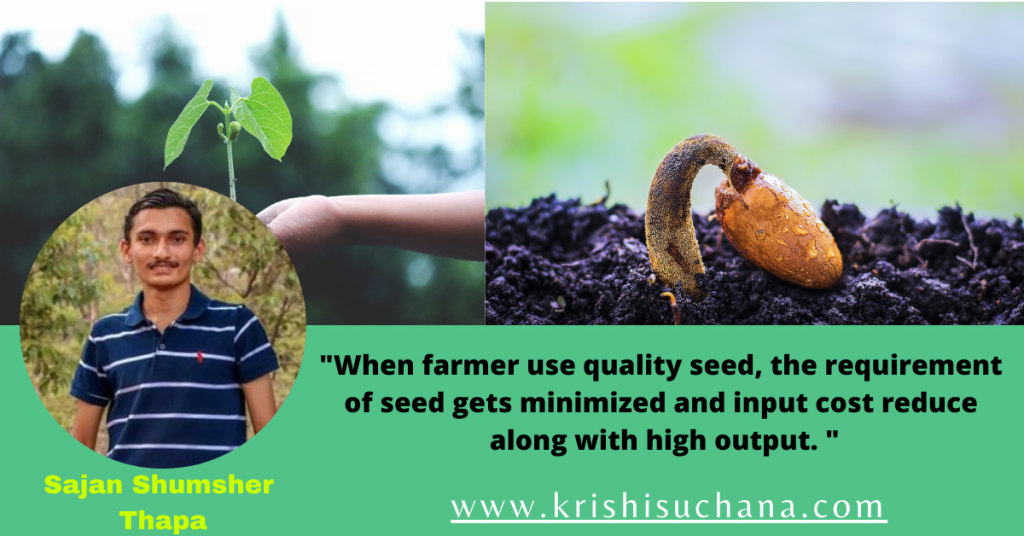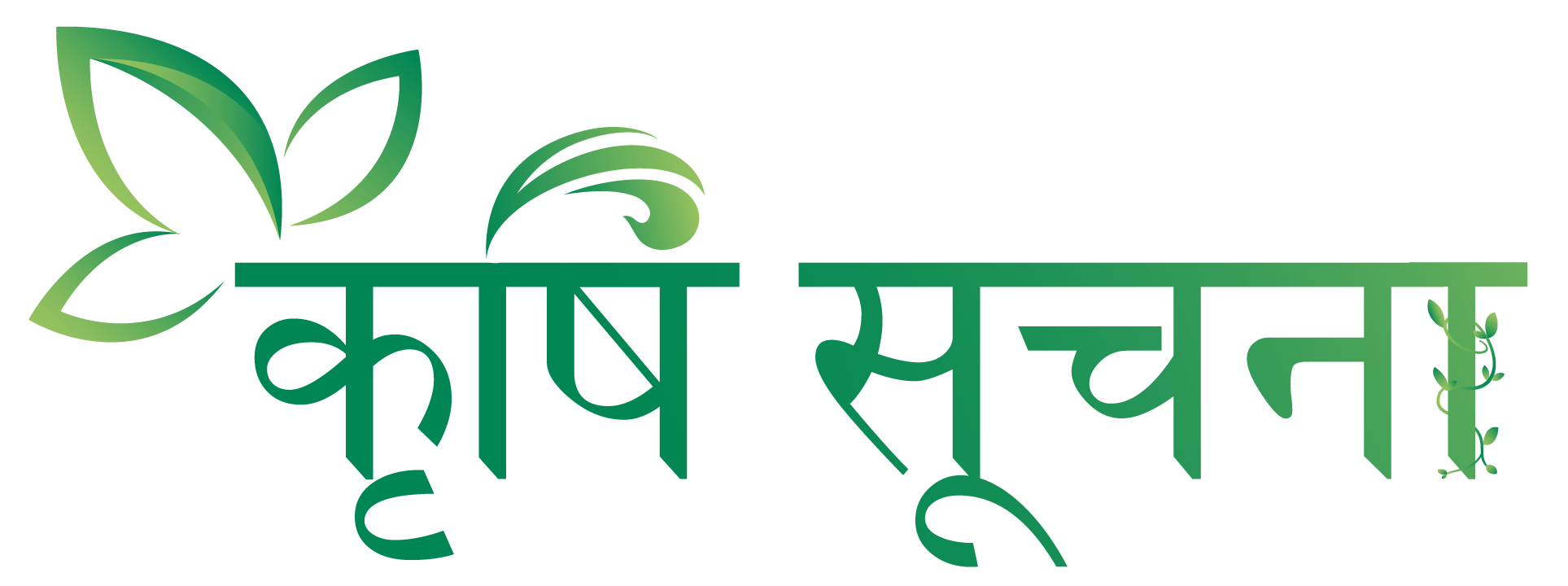Will quality seed assure food self-sufficiency and security?

Nepal is an agricultural country having 66% people directly engaged in farming accounting for 34% of the GDP. Nepalese farming is subsistence in nature and crop is mostly integrated with livestock. Although of the involvement of 66% of total population and 28.6% of total area in agriculture, the yield of the agriculture product is low as comparison to other countries. Likewise, our dependency on foreign market is also high. Nepalese farmer had to face the problems of poor germination, susceptibility to diseases and pest, physiological disorder of plant, damage of plant due to unfavorable environment and low yield even of hard work resulting food scarcity and food insecurity. Quality seeds of improved variety is a major need of Nepalese farmer to solve their problems.
Quality seed ensures good germination, rapid emergence, vigorous growth and free from diseases and pest. Quality seed and improved crop varieties are the most viable ways of improving agricultural production and food security in a sustainable manner. Regarding food security, there are three aspects at both national, and, more particularly, household levels: availability of food, access to food and stability of food supply. According to the refined definition of the FAO (2002), food security is defined as a situation that exists when all people, at all time, have physical, social and economical access to sufficient, safe and nutritious food that meets dietary needs and food preference for active and health life. The voyage of food security to food sufficiency travels through seed security. Seed security, a situation where farmers are certain, year after year, to obtain quality and quantity of seeds on time to fulfill their production plans, has mainly two important attributes i.e. the availability of and access to quality seed.
When farmer use quality seed, the requirement of seed gets minimized and input cost reduce along with high output. Quality seed can increase crop yield by 15-20%; which can help Nepalese farmer to be self-sufficient at an individual and national level. It can be best illustrated by Israel where the number of the farmer is dropped but the production is increasing by the adoption of quality seeds that favors the environment along the use of modern technology. Israel produced 95% of its own food requirements, complementing this with exports of agriculture product.
The risks associated to food security are rising as the price of factors that supports good food production such as quality seeds, chemical fertilizers and so on are increasing. In addition, we are compelled to rely on international markets as the majority seeds are imported from other countries which aren’t of good quality. Due to the global pandemic, the present situation of seed sector is deteriorating and people are not having easy access to such foreign market. In this scenario, there exists the great fear of food insecurity and ultimately there is no chance of reaching to the state of food sufficiency.
Looking forward to its solution, government should make availability of quality seed to farmers at a required quantity and time. Quality seed which are well leveled and possess blue or yellow tag should be used. Similarly, there are different private companies that are involved in seed production sectors. Their work should also be effective so that sufficient amount of seeds which possess good quality can be produced within our country.
Therefore, quality seed is a solution to the maximum problems of Nepalese farmer engaged in agriculture sector. Since, there is the direct relation between the food security and seed security. We must emphasize the use of quality seeds which ultimately increase the yield and will definitely help us to attain food secure and sufficient condition.
Writer : Sajan Shumsher Thapa

